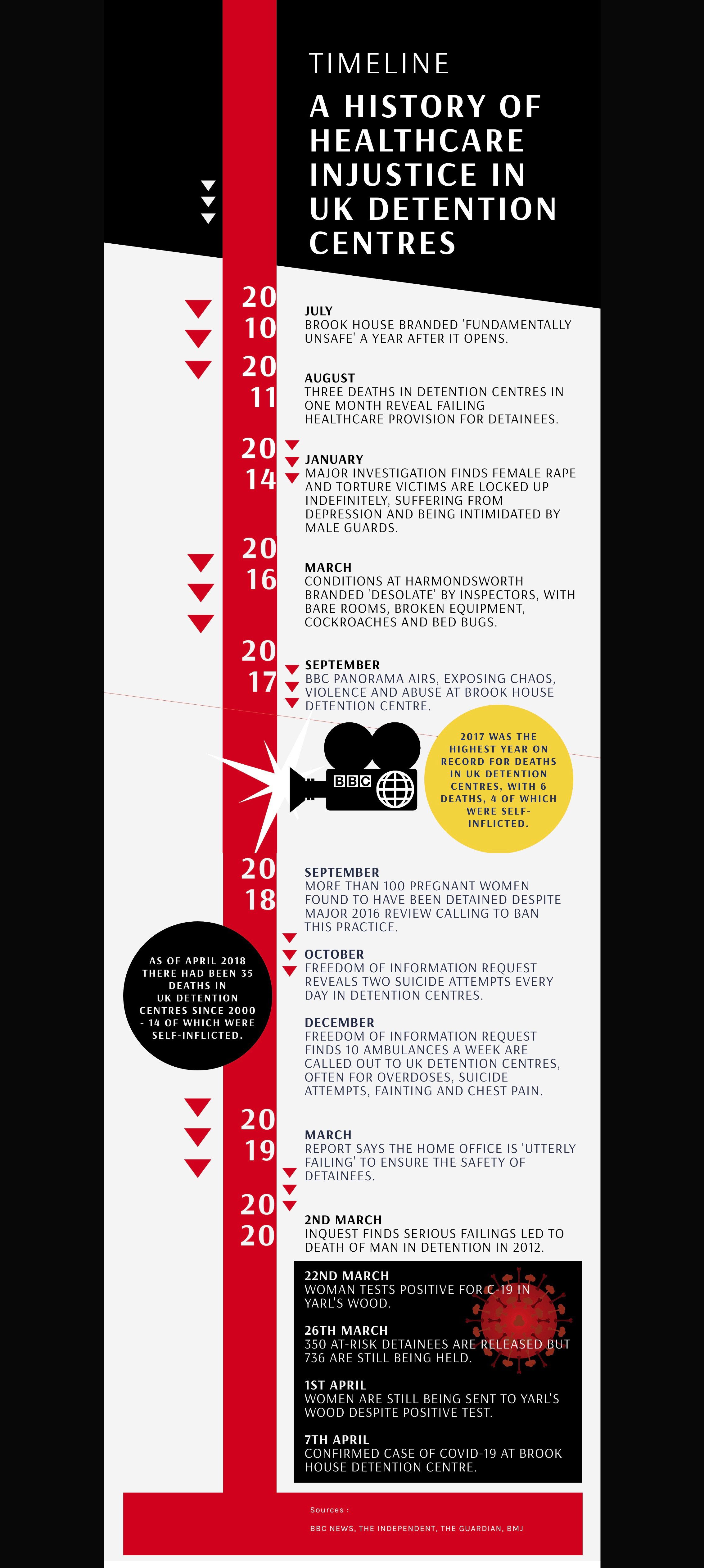"A breeding ground for rapid spread:"
how coronavirus threatens to create a humanitarian crisis in UK detention centres.
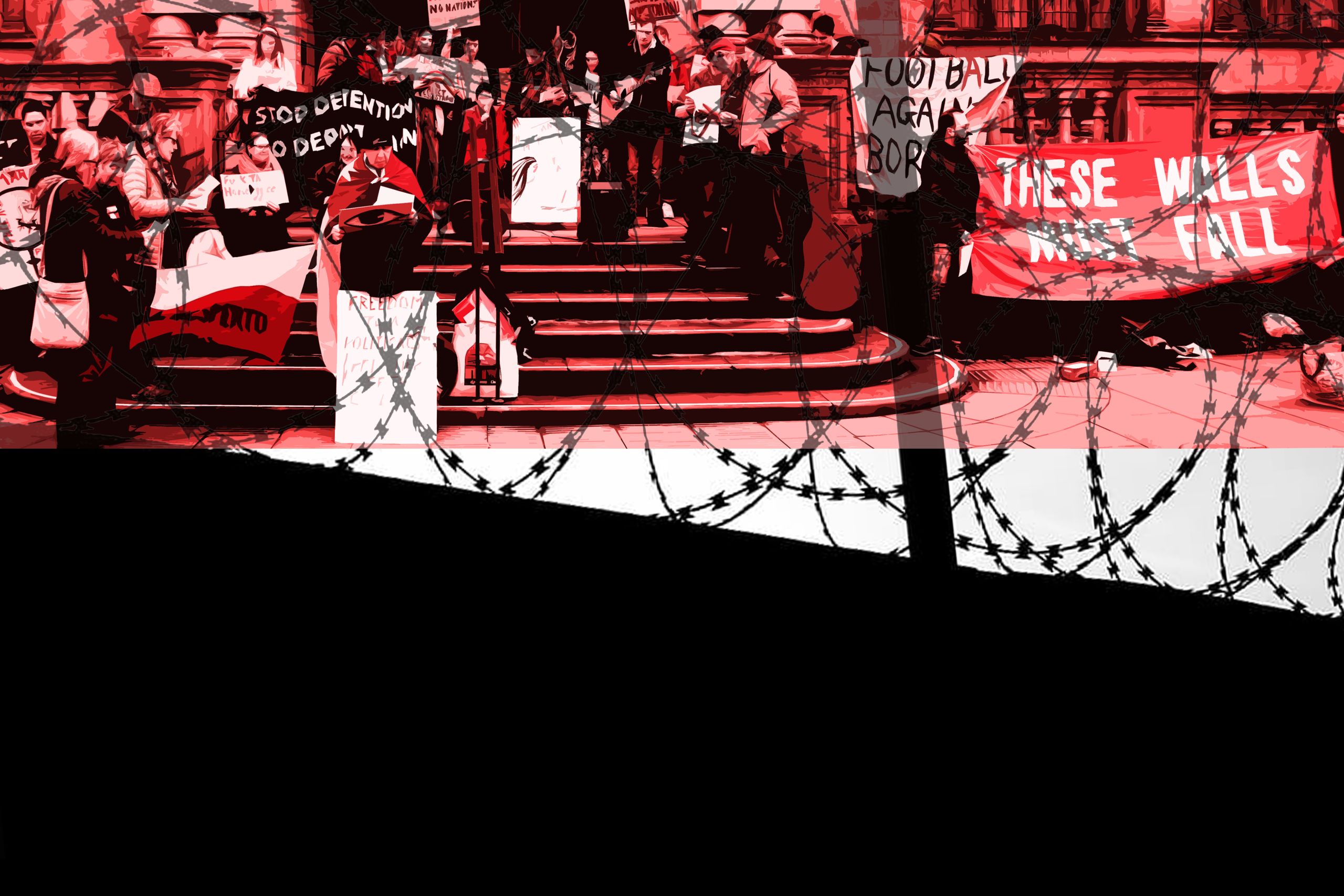
It’s a grey Saturday in March and the streets are eerily quiet in Sheffield city centre as protesters from Student Action for Refugees (STAR) Sheffield assemble on the steps of the town hall. Their banners bear the slogans ‘These Walls Must Fall,’ ‘Stop Detention, No Deportation,’ and ‘Shut down Morton Hall.’ The demonstration, due to take place outside Morton Hall Immigration Removal Centre (IRC) in Lincolnshire, has been scaled down and forced to remain in Sheffield due to coronavirus fears. There is an air of solidarity among the protestors, but an undercurrent of anxiety.
This will become one of the last permitted public gatherings in the city - unknown to the demonstrators, just two days later, the whole of the UK will be in lockdown.

Morton Hall is one of 10 detention centres in the UK that campaigners fear could become “breeding grounds” for cases of coronavirus. The BMJ global healthcare network says the centres are high-risk for clusters of covid-19, and that staff provide a dangerous bridge for infection to and from the community. Two IRCs currently have confirmed cases of COVID-19, prompting rising desperation in refugee rights groups and healthcare charities, who are urging the Home Office to take action and release everyone in detention - before outbreaks of the virus cause a humanitarian crisis.
“As with all places of detention, those incarcerated in IRCs are denied control over many aspects of their lives. Cells and bathrooms are shared, outside space and fresh air limited, and cleanliness is difficult to maintain. Sustained and effective social distancing is an impossibility for all within IRCs. Many detainees are especially vulnerable due to their age, co-existing physical illnesses and, in a high proportion of cases, mental illness.”
Voices calling for the release of detainees have included chair of the Parliamentary group on immigration detention MP Alison Thewliss, healthcare-rights group Medical Justice, campaign group Detention Action, the Association of Visitors to Immigration Detainees (AVID), and Amnesty International, as well as a group of ex-detainees who have made a personal plea to Home Secretary Priti Patel.
More than 400 detainees were released at the end of March in a rapid government effort to contain the spread of COVID-19 - a speed and scale of release that is unprecedented in recent years. The release came in the wake of a legal action by Duncan Lewis Solicitors, who argued that the Home Office had failed to protect immigration detainees from the coronavirus outbreak by not identifying those in at-risk categories. It is estimated that a quarter of those currently in detention have been set free, but that over 900 people remain locked up.
“The more time that goes on the more risk there is for a real rapid spread across detention centres.”
Dunya Kamal is a trainee solicitor at Duncan Lewis Solicitors in the public law team, dealing with immigration, asylum, and human rights law.
“The detention centres are a breeding ground for even more rapid spread of the virus, due to the close quarters. I had one client in Yarl’s Wood and she was sharing a room with a friend. There’s a lot of communal areas like the dining area where they’d be eating, and the courtyard which is very small - so everyone in detention is at heightened risk generally.”
Dunya points to recent action taken by the Spanish government, who released every migrant from the Barcelona detention centre, asking: “why hasn’t that happened yet for us… the more time that goes on the more risk there is for a real rapid spread across detention centres.”
She says her firm is working to a principle that has arrived from case law, which states you can only detain someone if you can effect their removal within a reasonable time scale.
“We’ve been saying that everyone in detention centres right now should be released - their detention is unlawful because there is no reasonable prospect of removal. The Home office can’t say that they can put one of our clients on a flight within a determined timescale, seeing as all countries have effectively shut their borders.”
The Home Office told Duncan Lewis Solicitors that they will conduct a case-by-case review on every individual based on their vulnerabilities, and the firm is now working with their clients to check they’re being contacted and to hold the government accountable to this pledge.

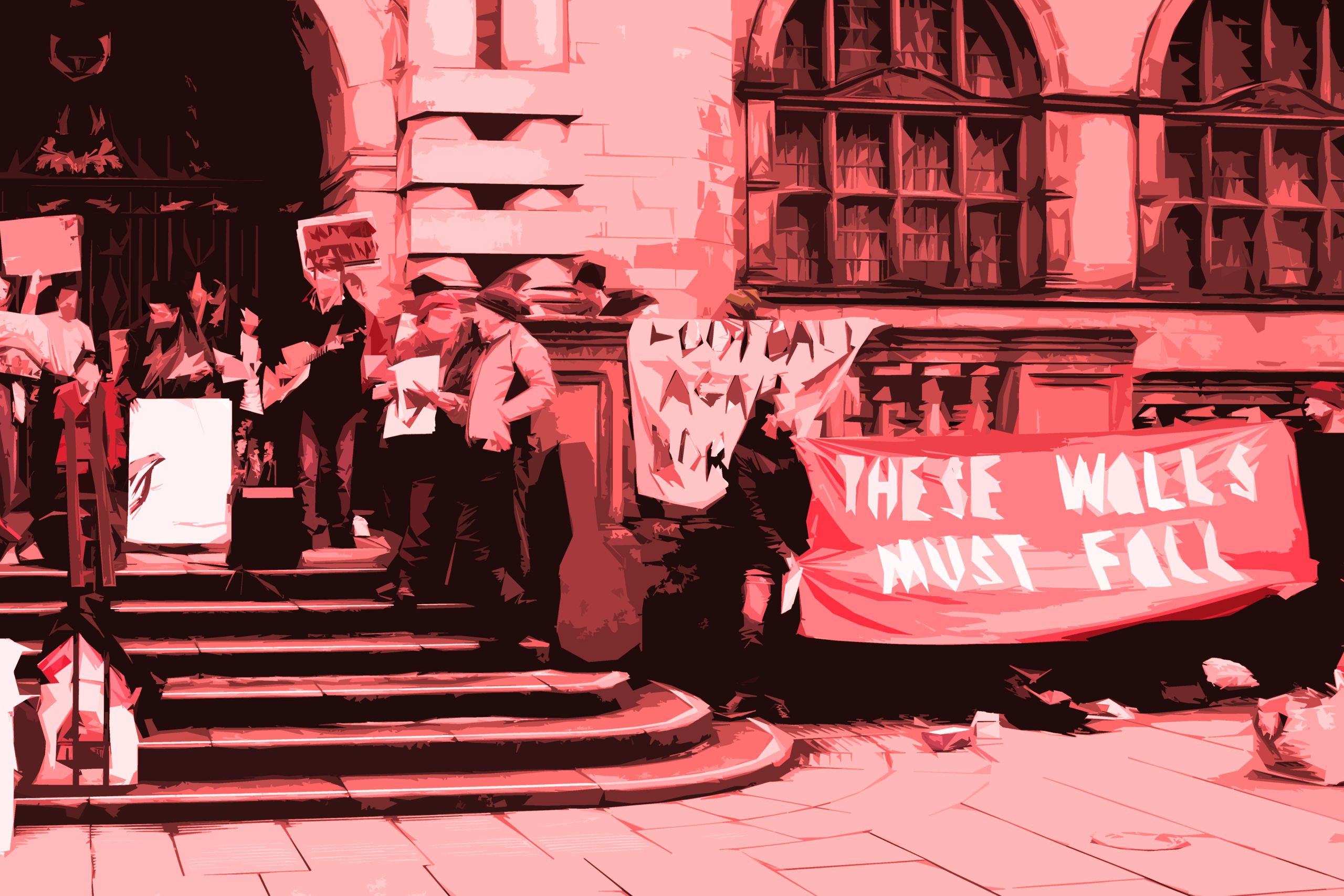
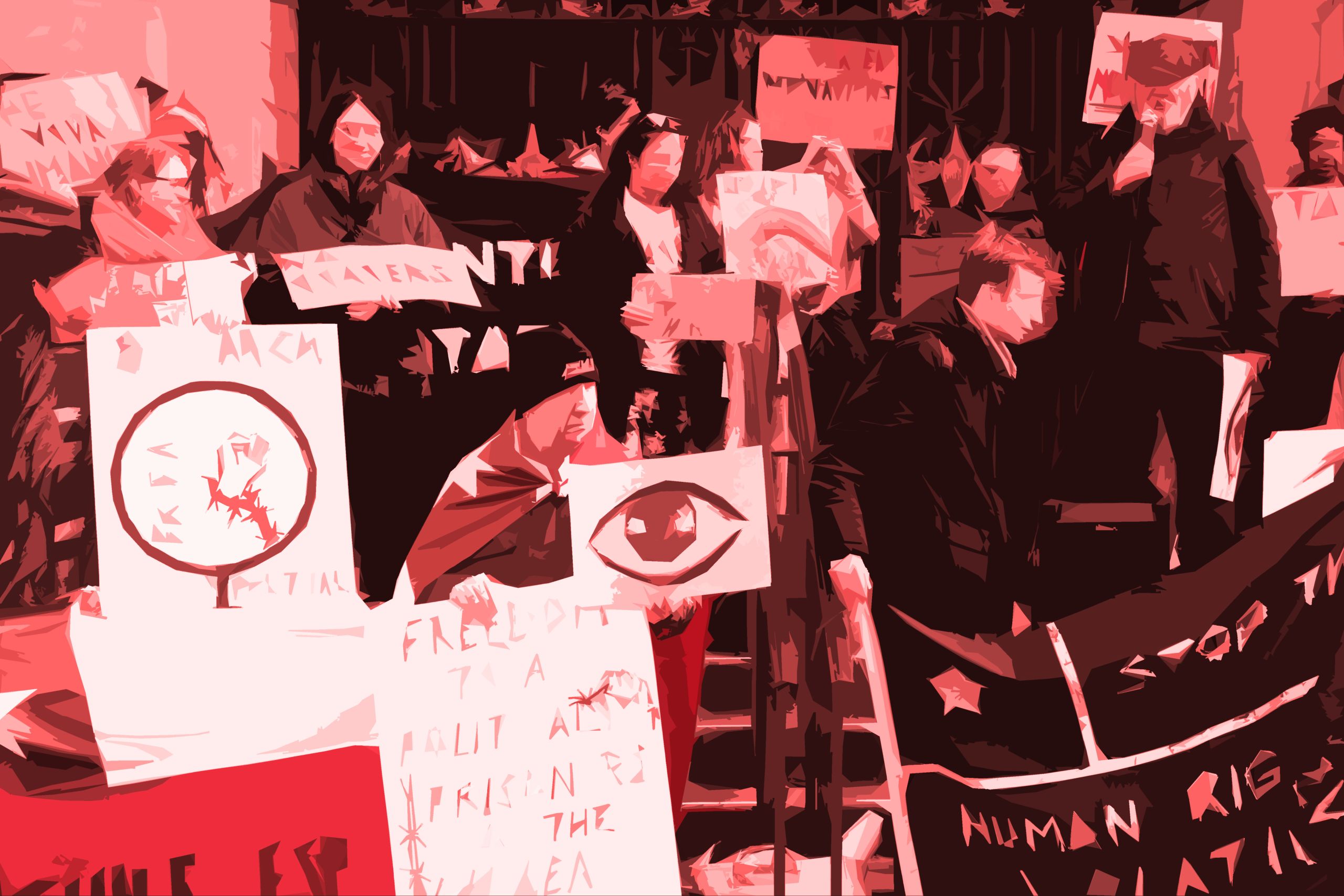
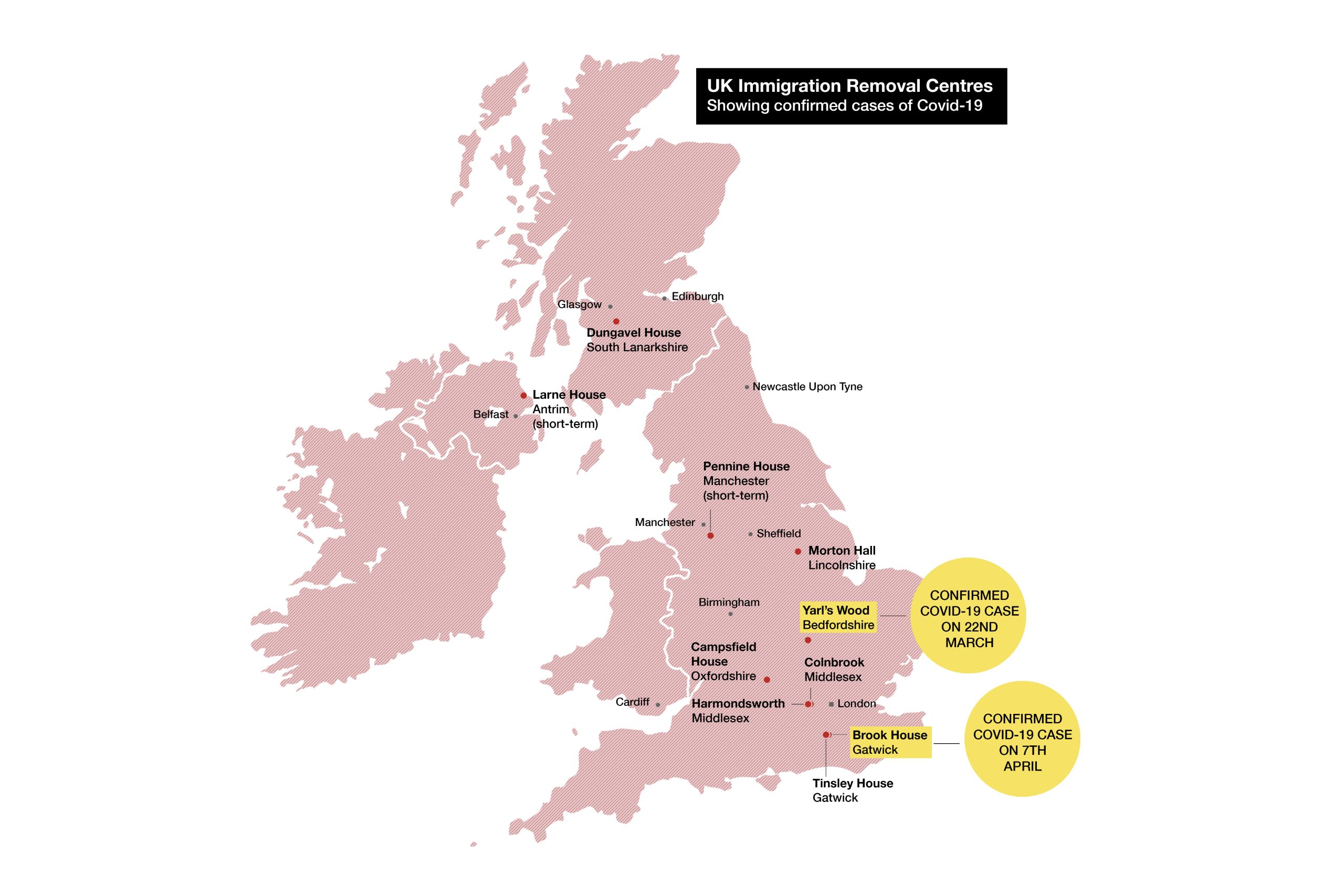
“People are telling us how hard it is to maintain even basic social distancing measures, and that provision of things like hand gel and sanitiser is sparse.”

Ali McGinley is director of the Association of Visitors to Immigration Detainees, who are pushing for the “safe, timely and managed” release of everyone in detention. She is worried that many of the centres don’t have adequate facilities to ensure proper quarantine, and says the information provided to detainees has shown the government’s “callous disregard” for their wellbeing.
“People are telling us how hard it is to maintain even basic social distancing measures, and that provision of things like hand gel and sanitiser is sparse. In the centres where cases have been confirmed, people are anxious and understandably scared.”
“We are hearing from people who feel they’ve been completely left behind as the rest of the UK works to put strict protection measures in place. Continued detention at this time is really at odds with the calls for public health protection. It is a moral and humanitarian outrage that people are being left behind this way.”

Protesters outside Sheffield Town Hall on 14th March, two days before enforced lockdown begins - their demonstration outside Morton Hall detention centre was cancelled due to coronavirus.
Protesters outside Sheffield Town Hall on 14th March, two days before enforced lockdown begins - their demonstration outside Morton Hall detention centre was cancelled due to coronavirus.
Lily Balkin, who’s studying at Sheffield University, was at the protest outside Sheffield Town Hall with STAR Sheffield. She laments the injustice of indefinite detention, which has been a key criticism of UK immigration policy.
“The UK is the only country that detains people with no limit. These people aren’t arrested, but even if you were arrested for terrorism, you’d only be able to be held for 14 days without being told how long you’re going to be held for.”
“It’s really inhumane, the conditions in there are awful, people are dying because they’re not getting the healthcare they need, like diabetics not getting insulin, and people that have psychosis not being treated.”
STAR Sheffield are demanding an end to deaths and abuses in detention, and ultimately the closure of detention centres, with an end to all deportations.

